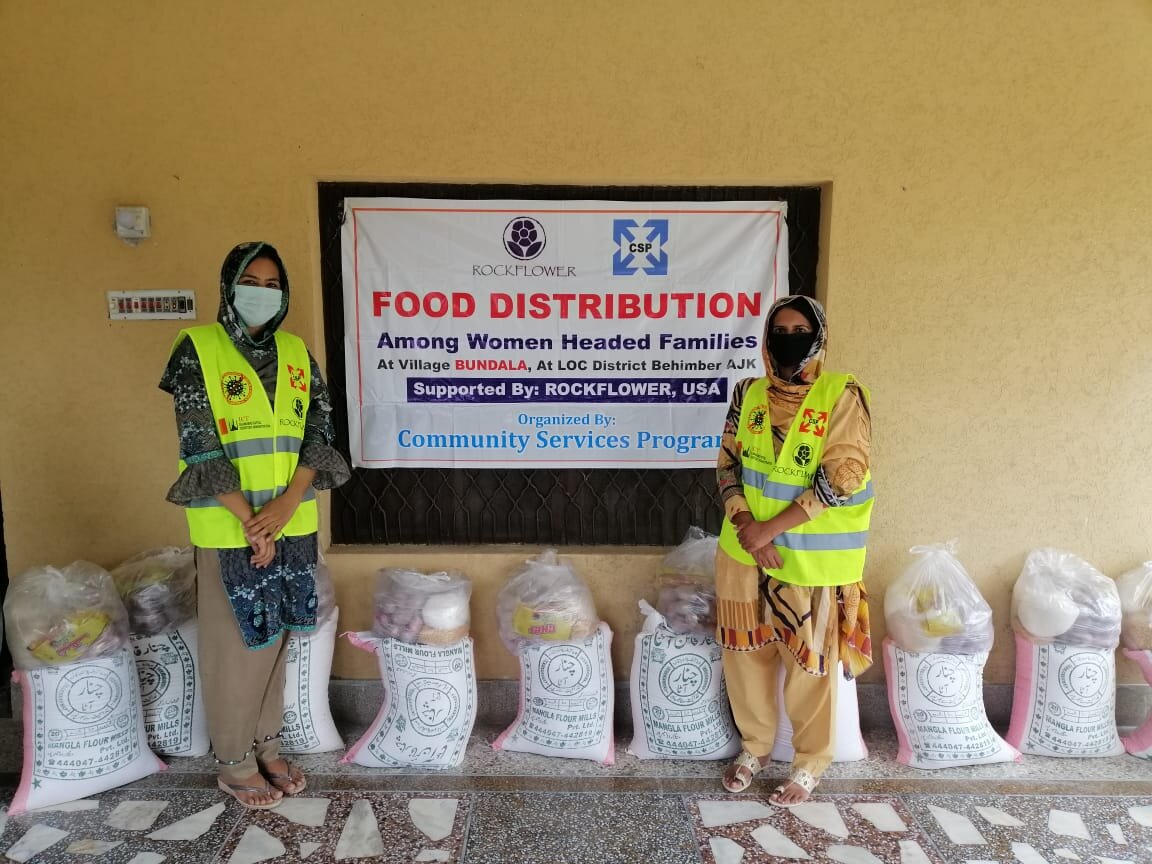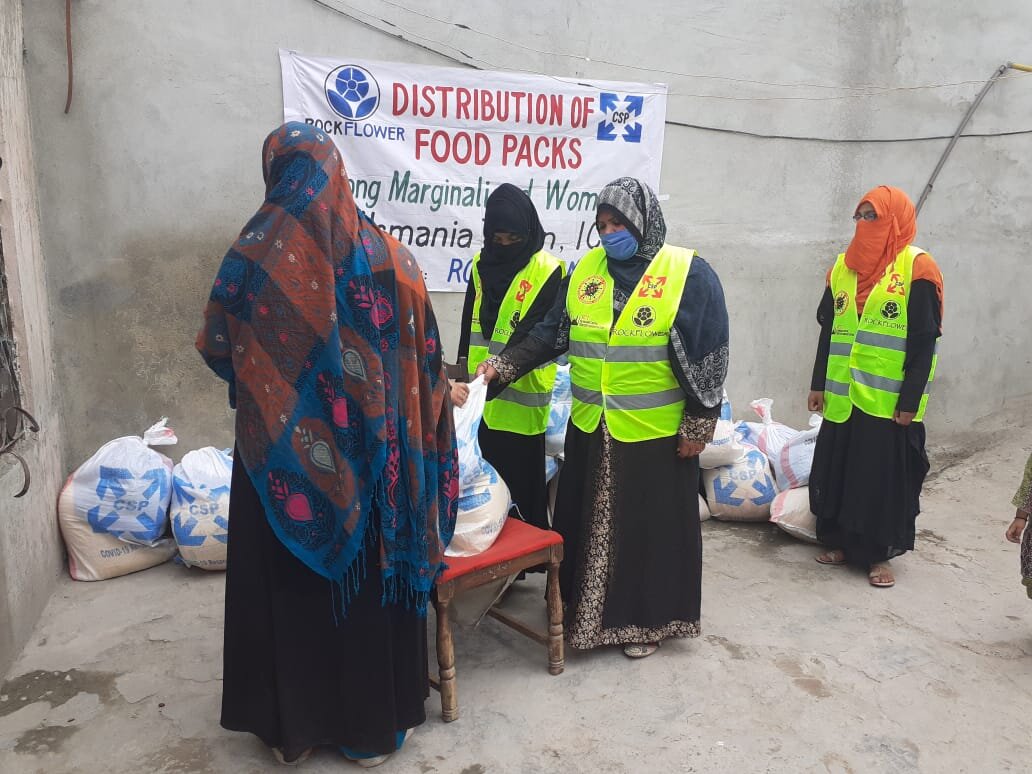COVID-19 Relief in Northern Pakistan and AJK
Location: Islamabad, Pakistan, Azad Jammu and Kashmir (AJK), Sudhanoti, Rawalpindi
Project Background
The COVID-19 pandemic was confirmed to have reached Pakistan in February 2020. The federal and provincial governments imposed several restrictions including closing the outpatient departments of hospitals, imposing a complete ban on intra-city, inter-district and inter-province public transport, and gatherings in public and private places. This has exacerbated the vulnerabilities of poor populations across the country, particularly those living in the hard to reach districts of Sudhanoti, Azad Jammu and Kashmir (AJK), Rawalpindi, and the outskirts of rural Islamabad.
Faced with this threat and the seriousness of the situation, there has been considerable mobilization. There is an urgent need to contribute to strengthening health systems and supporting vulnerable communities, especially those who depend on their daily income. This project is in response to the coronavirus and provides a framework to mitigate the impacts of the pandemic and strengthen the resilience of populations at risk to be infected.
The following factors are exacerbating the situation and causing the additional spread of COVID-19:
Highly volatile security and socio-political situation in the districts bordering with Indian-occupied Kashmir increasing fragility in remote rural areas
Poor hand-washing behaviors and practices among the population
Failure to observe the rules of hygiene during major social events
Use of traditional healers before health services
Insufficient stocks of medical supplies, overburdened health staff, and the lack of capacity building for healthcare practioners (both private and government)
Living with and taking care of pets and other livestock animals
Approach
In light of the effects caused by the coronavirus in Northern Pakistan and the border countries that have recorded cases of the disease and the needs expressed, Community Services Program will focus the intervention in the following sectors:
Non-food items (NFIs) and food items
Safety kits
Psychosocial wellbeing
Health and hygiene
Capacity building of vulnerable women
The project will cover the needs of the affected and at-risk women groups to enable them to protect themselves or even change their behavior to limit the infection and transmission rates.
The proposed Response will focus on the following actions:
Training and awareness for behavior change: Awareness-raising sessions will be organized in the high risk areas of the proposed districts on topics related to hygiene, sanitation and hand washing techniques; CSP female staff and female community volunteers will be trained in coronavirus response techniques through training events; facilitate trainings for the government’s health personnel (females only); psychosocial first aid sessions for family members and people affected by COVID-19, who have been placed in quarantine (females only); dissemination of information, education and communication (IEC) material to inform, orient and sensitize the population; help mothers in interacting constructively with their children during this time of confinement, such as planning one-on-one time, staying positive, creating a daily routine, avoiding bad behavior, managing stress, and talking about COVID-19.
Distribution of NFIs and WASH kits: WASH kits consisting of gel, soap, detergents, handwashing kits, nose protectors, gloves, and appropriate clothing for health workers and the project implementation team will be distributed to women-headed families.
Distribution of Food Items: Nutritional inputs, including milk and plumpy nuts for those affected by COVID-19 and rice, lentils, cooking oil, sugar, flour and spaghettis to confirmed, suspected or quarantined women-headed families.
Project Impact
In total over 25,000 women will be covered through awareness training and through direct support of non-food items (NFIs), coronavirus safety kits, and psychosocial first aid sessions for women affected by COVID-19.




